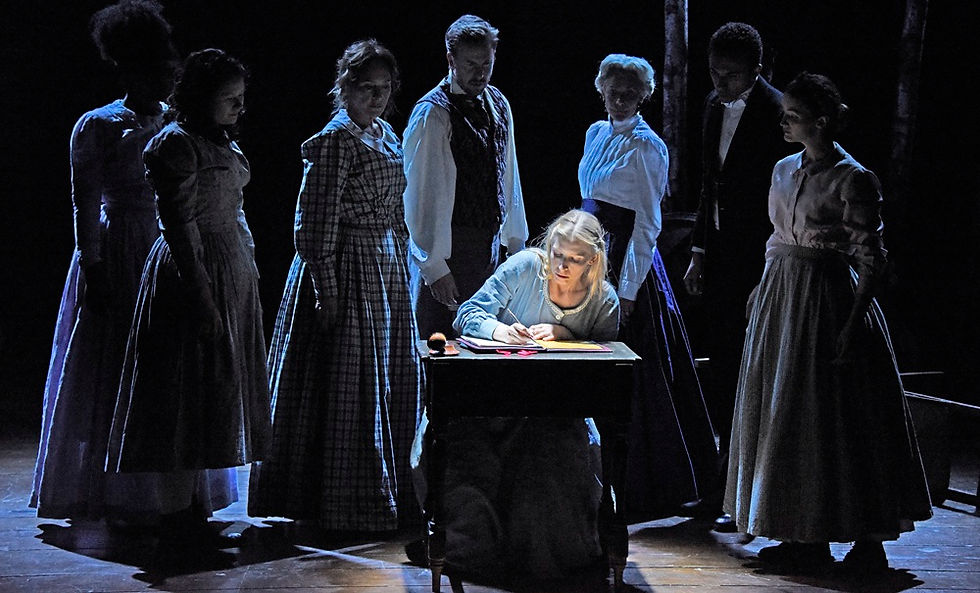Fanny | King's Head Theatre
- Julie Fisher (she/her)

- Oct 17, 2025
- 3 min read
While Felix Mendelssohn is a household name, his sister Fanny is less well-known. But Calum Finlay’s Fanny aims to right that wrong, bringing to life the story of the woman who actually composed Queen Victoria’s favourite piece of music.
Charlie Russell brings Fanny to life from the moment she bounds onto the stage, conducting an invisible orchestra. The music swells through the theatre as Russell scribbles notes and barks at unsuspecting audience members, now assuming the roles of percussion and strings.
Then the music abruptly cuts out and the lights come up, as Fanny’s younger brother Paul (Jeremy Lloyd) comes to remind her that she should be preparing for an important meeting (and to beg her to look over his own musical composition, one which appears to lack the brilliance of either Felix or Fanny’s work). One by one the other Mendelssohns fill the stage - overbearing matriarch Lea (Kim Ismay), melodramatic younger sister Rebecka (Danielle Phillips), and of course the famous Felix, fresh from a trip to the English court and already desperate to return.

The meeting they are preparing Fanny for is with Wilhelm Hensel (Riad Richie), a painter back from a five-year tour of Italy. Lea hopes he hasn’t converted to Roman Catholicism there, while Fanny just wants to talk to him about Puccini and Rossini. Wilhelm, for his part, wants to speak mainly in puns, a running gag which while funny, does become wearing at times.
The comedy in Fanny is at its best when it plays on the complex family dynamics and social etiquette of the time, with whip-smart exchanges between the Mendelssohn siblings. Felix and Fanny’s teasing of poor Paul is a particular highlight, with Jeremy Lloyd’s portrayal of the dim-witted youngest brother a star turn. Phillips is also excellent as the volatile Rebecka, desperate for Fanny to marry so she can finally respond to one of her many suitors, and her performance becomes ever more delightfully deranged as the show goes on.

After the set-up of Fanny and Wilhelm’s meeting, the story focuses on a madcap dash to England so that Fanny can present herself to Queen Victoria as the true writer of Italien. Here, the comedy also gives way to a more serious note at times, bringing into sharp relief the stories of women everywhere who have had their talents overlooked just because of their gender. A poignant speech from Lea to Fanny close to the end of the piece brings the story together in a way which delivers a call to arms without becoming preachy, rescuing a second act which is at times disjointed.
Music is unsurprisingly woven throughout the piece, from the piano used as the centrepiece of Sophia Pardon’s set for much of the play to the Mendelssohn compositions which underscore significant moments as well as being heard in the moment of composition (musical direction is by Yshani Perinpanayagam, with sound design from Bella Kear and Pierre Flasse). A particularly effective interplay of music and lighting comes as Fanny learns that Felix has passed off her work as his own, and tears down the drapes covering the set while lights flash and music soars.
Fanny plays at King's Head Theatre until 15th November 2025.
★★★★☆ (4*)
Gifted tickets in return for an honest review | Photography by David Monteith-Hodge







Comments